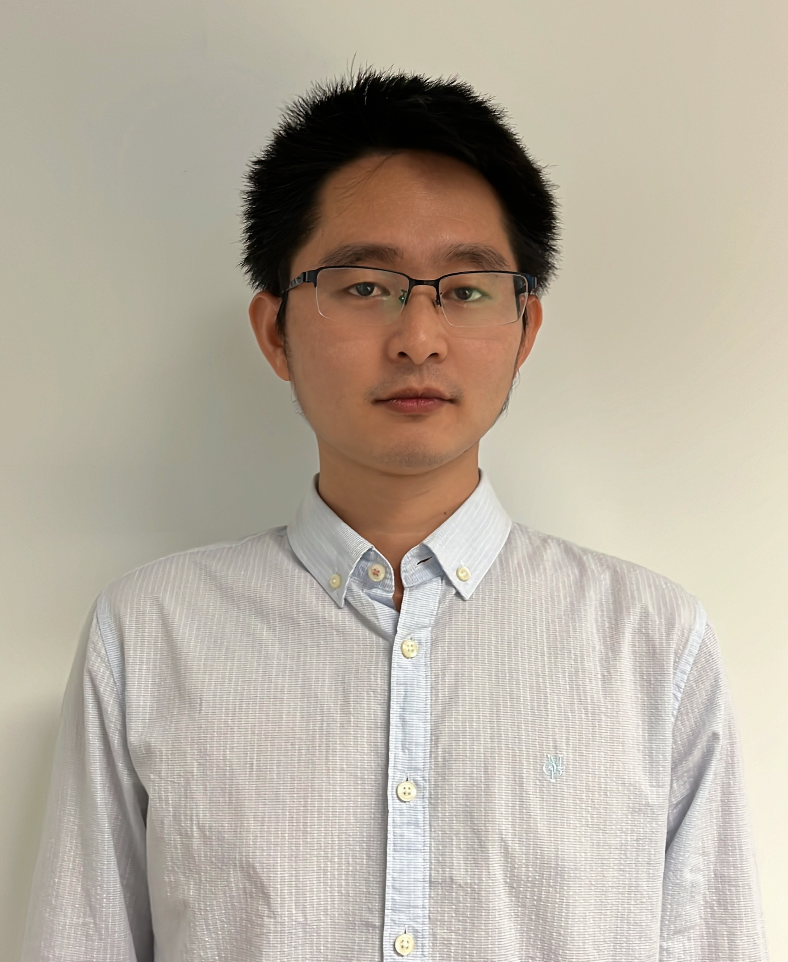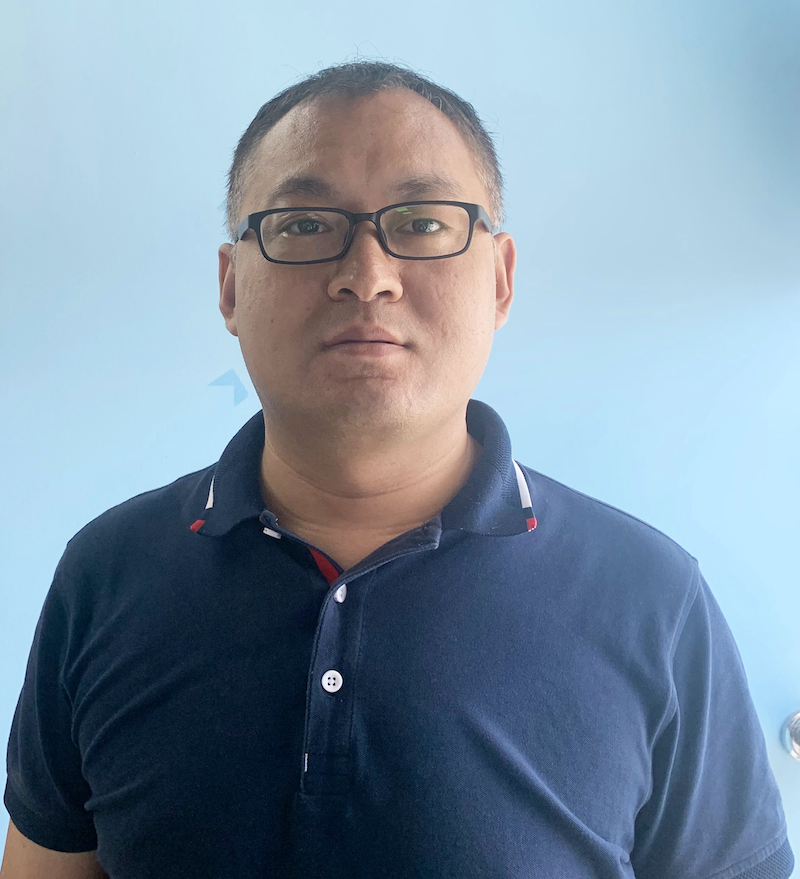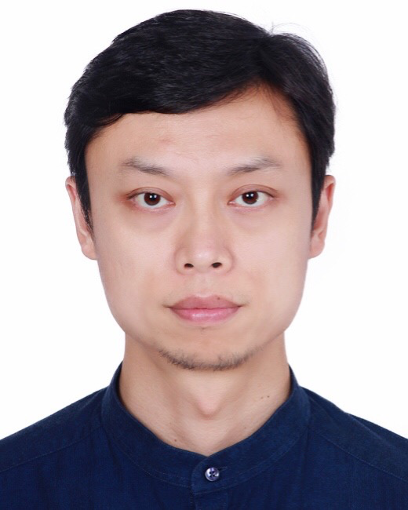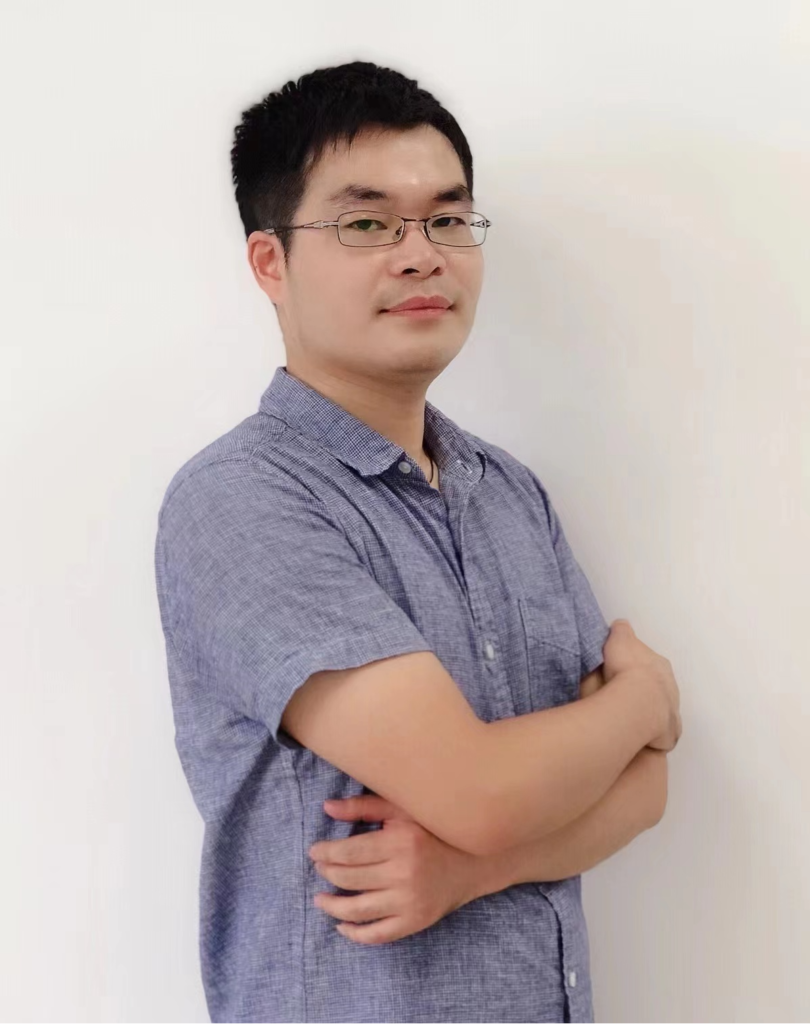Report 1
Title: The Trending Graph-enabling Technology — Galaxybase Distributed Graph Database: Introduction and Industrial Applications
Speaker: Chen Zhang (Chuanglin Technology Ltd.)
Abstract: Galaxybase is a native distributed parallel graph platform independently developed by Chuanglin technology, and its core code is 100% self-developed. Galaxybase can efficiently instantiate real-time connection, execute graph query and computation over large-scale data, and realize the deep cognitive intelligence of complex decision-making scenarios by mining the internal correlation of data, so that the offline analysis of traditional technology that requires hours or even days of processing becomes online intelligence of real-time decision-making. Earlier, Chuanglin technology and the team of Sun Yat sen University, in collaboration with the National Supercomputing Guangzhou center environment, completed the intelligent mining performance test of 5-trillion scale transaction data, breaking the world’s largest graph processing record. In May 2022, Chuanglin technology broke the performance record of audited ldbc-snb (linked data benchmark Council Social Network Benchmark) of the linked data benchmark Council (ldbc), and satisfied the official standards in system stability, availability, result correctness, transaction support and recoverability, and increased the throughput by 70% compared with the previous record of ldbc. The query performance was increased up to 72 times, and the average query performance was increased by more than 6 times. At present, Galaxy base has served many industry leading customers such as Agricultural Bank of China, Bank of communications, Minsheng, Tencent, State Grid, China Southern Power Grid, etc., providing solutions for complex big data real-time decision-making scenarios such as anti fraud, power dispatching, IT operation and maintenance, and successfully enabling enterprises to gain insight into data correlation and release the value of data assets.

Bio: Chen Zhang is a national distinguished expert, executive member of the information system special committee of the Chinese Computer Society (CCF), adjunct doctoral supervisor of Beijing University of technology. He is a Bachelor of computer science and technology from Zhu Kezhen College of Zhejiang University, a doctor of computer science from the University of Waterloo, Canada, and a postdoctoral fellow of McGill University. He once served as a big data scientist of American Express, participated in the research and development of the first generation of big data risk control algorithms of American Express, and a software architect of Silicon Valley start-up Splice Machine where he participated in the research and development of the world’s first Hadoop based distributed relational database. He is the co-founder of Graph Intelligence in Canada, and founded Chuanglin technology which is the first distributed graph database company in China. Chuanglin technology has received investments from famous institutions such as Baidu, Hillhouse, Tencent, Tongchuang Weiye and Dachen. The core product galaxybase is the world record holder of the fastest ldbc-snb performance benchmark and the largest-scale graph data which contains 5-trillion nodes and edges.
Report 2
Title: Knowledge Graph Industry Ecological Construction from 0 to 1
Speaker: Minghuan Li(Iflytek)
Abstract: Big data-driven knowledge learning, cross-media collaborative processing, human-machine collaborative enhanced intelligence, group integration intelligence, and autonomous intelligent systems have become the focus of the development of artificial intelligence, developing an intelligent economy, building an intelligent society, maintaining national security, and building an ecosystem in which knowledge groups, technology groups, and industrial groups interact and integrate, and talents, systems, and cultures support each other. The “New Generation Artificial Intelligence Development Plan” proposes that around the urgent need to enhance the international competitiveness of China’s artificial intelligence, the research and development and deployment of key common technologies of the new generation of artificial intelligence should be based on algorithms, based on data and hardware, and focusing on improving perceptual recognition, knowledge computing, cognitive reasoning, motion execution, and human-computer interaction capabilities, forming an open, compatible, stable and mature technology system. As a national new generation of artificial intelligence innovation and development pilot zone, Suzhou supports the knowledge computing engine and knowledge service technology, breaks through the core key technologies and promotes its application in the industry scenario, and relies on the rich application scenarios of the Suzhou Industrial Park to build a knowledge graph industry ecology has become an important forward-looking industrial layout. Attracting industrial talents through the construction of industrial potential energy, consolidating industrial development with demand docking, and accelerating breakthroughs in technical bottlenecks with the technical environment are the practical paths for exploring the ecological construction of 0 to 1 industries.

Bio: Head of Iflytek Forward Application Innovation.
Report 3
Title: Causal Reasoning and Knowledge Graph for Personalized Education Improvement
Speaker: Ziliang Chen (National Education Cloud of Intelligent Book)
Abstract:Education is the foundation of a country’s development. However, due to the constraints of national conditions, our education industry has long been faced with the dilemma of lack of education fairness and difficulty in implementing individualized education. On the other hand, the advancement of educational information infrastructure and the progression of educational big data have gradually made educational intelligence the key to overcome the aforementioned difficulty. This report attempts to take knowledge graph as the breakthrough point of education intelligence, and further discusses the changes of knowledge graph technology to the current education mode from the perspective of three different demands from educators, educated people and education managers. We combine the causal reasoning whose researchers have won the Turing Award in 2011 and the Nobel Prize in Economics in 2021, and how to integrate them into the construction and analysis of knowledge graphs to improve the effect of personalized education.

Bio: Dr. Ziliang Chen, Graduated from Sun Yat-sen University with a Bachelor Degree of Mathematics and Doctor Degree of Computer Science and Technology. His researches focus on Machine Learning, Causal Reasoning and Knowledge Graph. He is a Assitant Professor of Jinan University and also a Researcher of HCP lab in Sun Yat-sen University. He was a Senior Research Engineer of Dark Matter AI Group, serving the knowledge graph construction in sports and education industry. Doctor Chen has published a set of peer reviewed papers on top conference and journals such as ICML, CVPR, ICCV, AAAI, TKDE, IJCV, etc, and serve the oral presentations. He was a visiting researcher in Machine Learning department in CMU, and serve as a co-author in Chapter 12 of “Domain Adaptation in Computer Vision with Deep Learning”.
Report 4
Title: The Blue Sky And Sea of Knowledge Graph — The Construction and Application Practice of Military Quality and Safety
Speaker: Haiyan Ru(BM Smart Technology CO.,Ltd)
Abstract: Military products have high investment, high risk, technology-intensive and complex systems. Quality and safety are of paramount importance in the entire development and production process. This report represented by the aerospace and shipbuilding industries, introduces the construction and application of military quality and safety graph for product R&D, design and production management. The report will share the solutions, technical routes and practical experience of business analysis and knowledge system design, concept graph construction, instance graph construction, and graph computing applications based on user needs.

Bio: Haiyan Ru, consulting director of BM Smart Technology CO.,Ltd, 6sigma black belt, third-level invention expert of MATRIZ (International TRIZ Association). More than ten years of practical experience in enterprise digitalization and intelligent solution design and implementation,and rich experience in intelligent scene design with knowledge graph as the enabling engine. She has participated in many industry leaders such as Sinopec, Shanghai Waigaoqiao Shipbuilding, and COMAC knowledge graph construction and application project. She has published ten books, three national standards and eight Chinese patents.
Report 5
Title: Application of the Knowledge Graph in the Field of Architecture
Speaker: Zicheng Wu (China construction science research institute)
Abstract: Since the 18th National Congress of the Communist Party of China, China’s economy has entered a new era. The growth of the economy and fixed asset investment has slowed down, and the construction industry has entered a stage of steady growth. However, the traditional model has been unable to meet the demand for high-quality development in the industry, so transformation and upgrading are imperative. Artificial intelligence is the core driving force of the new round of technological revolution and industrial transformation. It can achieve comprehensive perception, deep cognition, intelligent interaction, and self-evolution by combining the knowledge graph with BIM data, industry data, and normative knowledge graph of the construction engineering industry.

Bio: Zicheng Wu, China construction science research institute co., LTD., General Manager of New City Construction Division and Suzhou R&D Center of Structure Force Technology, senior engineer, expert of Ministry of Science and Technology, BIM expert of Anhui Province and Guangdong City and other provinces, member of China Civil Engineering Association, has attended and hosted several national projects and had more than 10 artificial intelligence invention patents. He once served as the general manager of iFlytek Construction Technology for many years of experience in the integration of artificial intelligence and construction applications.
Report 6
Title: Insurance & Medical Knowledge Graph Construction and Application
Speaker:Yang Li (Ant Group)
Abstract: In recent years, the insurance industry has been developing rapidly and gradually becoming an important financial tool for people to control risks and improve life guarantee. With the digital transformation of the insurance industry, it is increasingly important to use artificial intelligence, knowledge graph and other technologies to improve the intelligent construction level of the insurance industry. This report will introduce the construction and application of Insurance & Medical Knowledge Graph, including schema design, document recognition, information extraction and KBQA. In the practice scenario, the constructed knowledge graph helps to support intelligent applications such as insurance underwriting services, risk control of claim handling services, and insurance recommendation.

Bio: Yang Li, graduated from the UESTC, he focuses on the research and development in Knowledge Graph, Information Extraction and Pre-training Language Model. Now he works in Ant Group, Algorithm Expert of insurance consultant team, responsible for ZhiXiaoBao insurance QA robot. He is a member of the SIGKG of CIPS, a member of the CCF. He has published more than 10 papers in SIGIR, AAAI, CIKM and other conferences and journals, won the NLPCC 2018 outstanding paper award, and won the first place in many competitions such as CCKS 2018 KBQA, FewClue.
Report 7
Title: Enterprise Knowledge Graph Driven Knowledge Discovery, New Method of Pharma Digital Transformation
Speaker: Gang Wu (KG Data)
Abstract: Affected by domestic policies such as volume-based procurement scheme and the registration and recording system for medical representatives, many pharmaceutical enterprises have encountered challenges in their original sales models. Digital transformation based on technology is urgently needed to improve R&D efficiency, accelerate the launch of new products, expand the market, and enhance drug compliance in patients. In the era of big data, with the rapid development of artificial intelligence technology, the “new method” of digital transformation has become an arising focus of pharmaceutical enterprises. For knowledge-intensive pharmaceutical enterprises, the knowledge graph can help build knowledge-driven intelligent platforms to accelerate digital transformation. Specifically, the knowledge-driven intelligent platforms include all parts from R&D to information tracking, academic marketing promotion, and patient health management.

Bio: Gang Wu, CEO of KG Data, an off-campus enterprise master tutor at the School of Information Renmin University of China, a senior member of the CCF, a member of the SIGKG of CIPS, and a key member of IEEE Knowledge Graph technology standard team. He graduated from the Chinese Academy of Sciences with a degree in HCI&Intelligent Information Processing. He has served as Chief Consultant of Thomson Reuters, which is one of the top intelligent information global companies. He has 20+ years of experience in the fields of intelligent information and artificial intelligence, including R & D, products, solutions, and consulting. He set up KG Data in 2015. KG Data got 3-round VC funding and served more than 10 top MNC Pharma with enterprise knowledge graph-driven knowledge discovery solutions.
Report 8
Title: FMEA Knowledge Graph in Cognitive Manufacturing
Speaker: Wenguang Wang (Datagrand Inc.)
Abstract: In 2021, China’s manufacturing GDP exceeded the sum of G7 (US, Japan, Germany, UK, France, Italy and Canada). At the time of upgrading China from a manufacturer of quantity to one of quality, high-end manufacturing is becoming increasingly important. The “made in China 2025″ action plan clearly mentions that ” Continue to view quality as the core of manufacturing leadership, …, support quality-related research, …, Follow the path of competing with high quality.” Datagrand knowledge graph platform for intelligent manufacturing focuses on FMEA methodology and knowledge graph technology, mining the domain knowledge and expertise, creating tools for controlling, managing and improving product quality and manufacturing reliability. FMEA knowledge graph aims to discover potential failures from the characteristic dimensions of 6M (Manpower, Method, Machine, Material, Milieu and Measurement), make“cause and effect”problem-solving strategies by means of cognitive intelligence. It is applicable to planning, R&D, purchasing, manufacturing, supports etc. After product failure or manufacturing failure, with knowledge computing and knowledge reasoning, FMEA knowledge graph system could be used to identify the root cause of the failure and ensure that the correct remedy is applied to resolve it. So that the FMEA knowledge graph empowers the advanced manufacturing industry to become increasingly lean.

Bio: Datagrand VP, senior engineer, Standards setting expert in AI, author of the book “Knowledge Graph: Cognitive Intelligence Theory and Practice”. He focuses on the research and development in NLP, Knowledge Graph, Computer Vision, Speech Analysis, Cognitive Intelligence, Bigdata and Graph Analytics etc. He is a member of the Shanghai Artificial Intelligence Standards Committee, a technical expert of the Science and Technology Commission of Shanghai, a member of the SIGKG of CIPS, a senior member of the CCF, and a member of the deep learning special committee of CAAI. He has won many international, national, provincial and municipal awards, and has dozens of national invention patents and academic papers in artificial intelligence. In Datagrand, he is committed to the productization of NLP, knowledge graph, computer vision and big data to empower the financial industry, manufacturing industry, semiconductor industry, automotive industry, aerospace, new energy industry, carbon peaking and carbon neutrality, and so on.
Report 9
Title: Application of Cognitive Intelligence and Knowledge Middle Platform in Industrial Field
Speaker: Jiliang Li (AISHU Technology Corp.)
Abstract:Industrial each link ring around the man,machine,material and method, the presence of large amounts of structured (operating data), unstructured data (manual), semi-structured (equipment status data), located in equipment failure analysis, discrete manufacturing scheduling optimization, impact analysis, industry and market needs to be comprehensive, multi-level analysis of the cognitive ability to aid decision making. This report mainly puts forward the asset-oriented, knowledge-oriented and service-oriented data for the industrial field, and is committed to the intelligent enterprise operation, research and development and manufacturing.

Bio: Jiliang Li, graduated from south China university of technology, has a master’s degree in computer application technology. Vice President of AISHU Company, North Big Data Trading center co., LTD., general manager, responsible for AnyDATA product line , as well as the ecological development of data exchange. He used to be the product line manager of AnyBackup and AnyShare.
Report 10
Title: Multi-source Heterogeneous Graph Learning for Life Services
Speaker: Mengdi Zhang (Meituan)
Abstract: Meituan’s digital retail covers all aspects of life services, and the massive data accumulated on the platform contains complex relationships between various business entities. Past practice shows that knowledge graphs and graph learning are effective means to model complex semantics, but the existing technologies are still insufficient in dealing with multi-modal data fusion, dynamic data evolution, ultra-large-scale representation learning, and efficient application. In response to the above problems, this report will introduce the latest exploration and application of multi-source heterogeneous knowledge fusion and representation learning in the field of life services.

Bio: Mengdi Zhang now leads the Knowledge Computing Group in Meituan. Mengdi works on knowledge representation and reasoning, such as large-scale graph learning, structural data pre-training and interpretable machine learning. Before Meituan, she lead the data science in a FinTech start-up and co-founded the open Chinese knowledge graph community OpenKG. Mengdi has published more than ten rearch papers on top conference such as IJCAI, KDD, SIGIR, etc., and has rich experience in knowledge-based search, recommendation and question answering system design.
Report 11
Title: Application of Knowledge Graph in Online Advertising
Speaker: Suncong zheng (Tencent)
Abstract: In order to achieve advertising conversion,we need to accurately model user interests and product features. Through in-depth mining knowledge of industry domain, it will help to improve the effect of advertising recommendation, and then maximize commercial value. This report will focus on the construction and application of knowledges in advertising system, especailly for the fields of game、education and finance.

Bio: Suncong Zheng, Graduated from Institute of automation, Chinese Academy of Sciences with a Ph.D, and obtained ACL-2017 outstanding paper award. He has been responsible for Tencent’s Lexical tools, Tencent’s large-scale knowledge graph Topbase, and has rich practical experience in information extraction, KB-QA and recommendation.
Report 12
Title: The Collaborative Construction of the Enterprise Knowledge Platform with Knowledge Graph and Information Retrieval Technology
Speaker: Zheng Yu(HaiZhi XingTu Technology Corp.)
Abstract: How to effectively organize, correlate, and mine enterprise multi-modal data, so as to accumulate knowledge and unified knowledge services is one of the main concerns in the digital transformation and the intelligent transformation of enterprises. This report will focus on the construction and application of the multi-modal enterprise knowledge platform based on core technologies such as knowledge graph, QA and IR while sharing the challenges and solutions encountered in the implementation of frontier algorithms and models.

Bio: Zheng Yu, graduated from the School of Computer Science and Software Engineering of East China Normal University with a Ph.D. His main research interests include deep learning and NLP. He has published several papers in international academic journals and top-tier conferences such as IJCAI, TKDE, etc. After graduation, he started work in the industry. He has focused on technology research and product development in NLP, knowledge graph, machine learning, etc. He has rich experience in product solution consulting, R & D, and technology implementation in many fields such as finance, industrial manufacturing, and power. He host and participated in a number of national special projects in Artificial Intelligence and Big Data. He joined HaiZhi XingTu Technology Corp.in 2021 as Vice President in charge of the knowledge graph product line. Meanwhile, he is also a distinguished expert of the Shenzhen Industrial Internet Association and an off-campus master tutor at the Beijing Institute of Petrochemical Technology. He held a number of invention patents and is one of the main authors of the book “Human-Machine Synergy”, which belongs to a special series published by the Science Press.
Report 13
Title: Knowledge Graph and Web3
Speaker: Costas Georgiou (EpiK Protocol)
Abstract: With the rapid development of Web3 technology, the trusted shared storage capability is also maturing, and its application scenarios are scaled up from shared ledgers to the level of shared databases. With Web3, we can provide open and trusted infrastructure for knowledge graph construction on a global scale. This session will focus on the ideas and practices of creating the Web3 version of collaborative and shared public interest knowledge graphs and discuss the innovations and challenges of this new approach.

Bio: Costas Georgiou is the co-founder of BeHive, the Knowledge Ecology Ambassador of EpiK Protocol and a graduate of the UCL Peking University MBA.
Report 14
Title: Cross-language Knowledge-and-data-driven Pre-training Technology and Industrial Practice
Speaker: Ziyan Chen (Global Tone Communication Technology Co., Ltd.)
Abstract: The global multilingual industry knowledge graph and big data are the core engine for the in-depth development of the digital economy, and artificial intelligence based on big models is becoming the intelligent brain for the development of the digital economy. GTCOM has built a multilingual pre-training model , based on its advanced global language intelligence technology with a large-scale cross-language industry knowledge graph and a global multi-language big data system. The big models provide a bridge between knowledge intelligence and data intelligence, enabling vertical industry applications such as military, finance, and technology.

Bio: Ziyan Chen, currently the director of NLP field of GTCOM 2030 Artificial Intelligence Research Institute, graduated from the Institute of Electronics, Chinese Academy of Sciences with a Ph.D. His main research interests include information extraction, natural language generation, and cross-language knowledge graph construction. He has published more than 10 papers in international academic journals and conferences, and participated in a number of major national projects, such as pre-research projects and National Natural Science Foundation.
Report 15
Title: Pre-training Models Based On Large Scale Knowledge Graphs
Speaker: Peng Zhang(Zhipu.AI)
Abstract: Pre-training models and knowledge graphs are two hot AI technologies that the industry has paid much attention to recently. The former uses a data-driven approach based on deep learning to improve the algorithmic effectiveness and application paradigm of tasks such as NLP, while the latter provides a clear methodology and path for the accumulation and utilization of industry knowledge. How to combine the advantages of both and realize the implementation of cognitive intelligence driven by both data and knowledge is a topic of considerable interest. This report takes some of our research and application exploration in pre-training and knowledge fusion as an example, and tries to provide a possible idea and direction for the industry.

Bio: Peng Zhang, CTO of Zhipu.AI, graduated from the Department of Computer Science and Technology of Tsinghua University with a PhD in 2018 Innovation Leadership Project, and his research areas include text data mining and semantic analysis, knowledge graph construction and application. As a principal researcher, he participated in the research and development of cross-lingual knowledge extraction of the EU 7th Cooperation Framework, “Key Technologies and Systems for Building and Constructing Massive Knowledge Bases” of the National 863 Program, and AMiner (https://aminer.cn), a science and technology intelligence analysis and mining platform, and participated in the design and development of He also participated in the design and development of XLORE (http://xlore.org), the first cross-lingual knowledge mapping system in China with balanced Chinese and English, and published more than 10 articles in top conferences such as ICML and ISWC. He has long been committed to applying knowledge graph research theories to practical needs, and has rich practical experience in semantic big data analysis, intelligent question and answer, and assisted decision-making applications.
Report16
Title: Knowledge Graph Enhances Intelligent Investment Research
Speaker: Rui Zeng (DigitalWorldAI)
Abstract: Fundamental investment research in the financial field is to establish a top-down research framework from the macro, to the industry, to the company. For each object, intricate relationships and data linkages need to be established at the micro level. And this is exactly what knowledge graph technology is good at. How to design a financial knowledge graph schema for financial business scenarios? How to associate entity objects with key assumption data to support business analysis and deduction? What are the interesting cases for knowledge graph in fundamental investment research field?

Bio: Rui Zeng has a bachelor’s degree in software engineering from Jilin University and has more than 10 years of Internet experience, and has worked in large Internet companies such as Baofeng Inc., Sogou Inc. and Lashou Inc. etc.. He is currently the Vice President of Technology at DWorld AI Inc., responsible for Industry Chain & Knowledge Graph Intelligence Investment Research platform, and leading the planning and construction of Intelligent Investment Research platforms for many well-known securities companies and fund houses.
